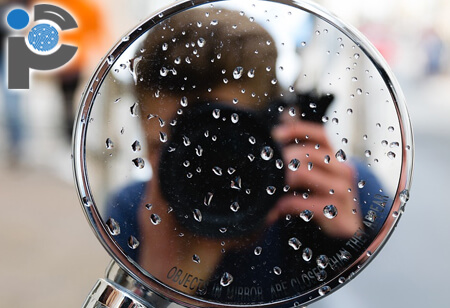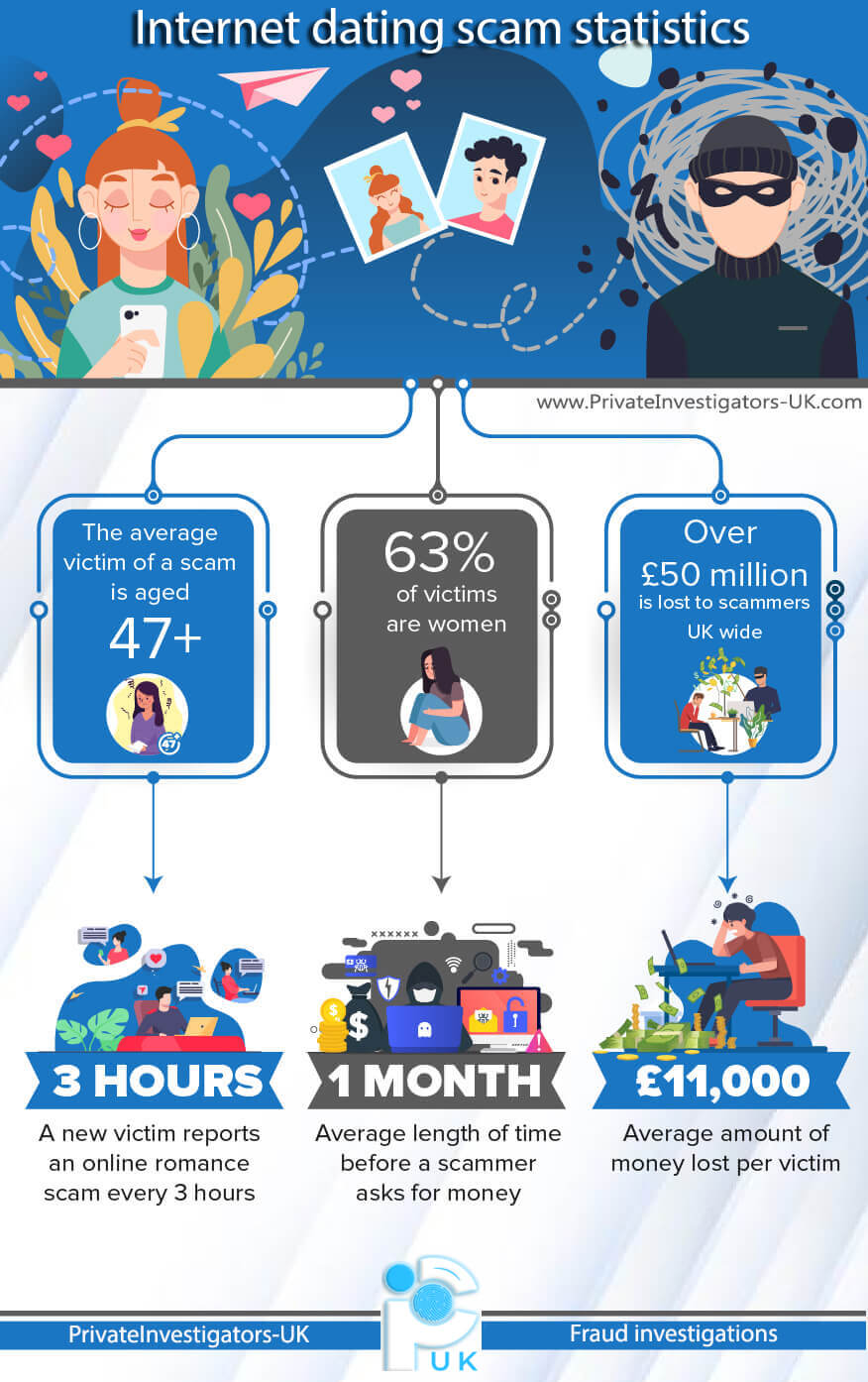Why Do Private Investigators Follow People?
July 16, 2021 - Reading time: 10 minutes
Updated on: August 7, 2025
As private investigators, our work is often misunderstood and fictionalised by popular TV shows and movies… The reality is that private eyes work across the UK (and most countries!) on a daily basis. Some people may even develop fears that private investigators might be following them, however, PIs will only follow people for good reason.

There are many different reasons which might cause a private investigator to follow you, from an accident injury claim investigation, to an investigator instructed by your partner and anything in-between. Private investigators do not simply follow people out of their own free will – they do so because they receive instructions from their clients. We will explore some of the most common reasons for private investigators to follow people in this article.
1. Accident injury claims
Accident injury claims are one of the most common reasons for private investigators to follow people. With an abundance of “no win no fee” law firms operating across the UK, pursuing litigation is often easy and costless for claimants, and the temptation for them to exaggerate or fabricate their injuries is ever-present.
With stakes running high, it is often a cost-effective decision for insurance companies to instruct private investigators to follow people and examine their injury claims. If, for example, a subject claims that they are not able to walk unaided, and that same person is later photographed by a private investigator playing football, then they may find it difficult to explain the evidence which is gathered.
If you are making an injury claim then you should expect that a private investigator may examine your claims and verify their accuracy.
2. Infidelity investigations
Infidelity and accident injury investigations are by far our most common reasons for conducting surveillance on an individual. If your partner suspects that you might be cheating on them, then they may decide to check your activities by hiring a private investigator to follow you and check on your movements.
Most people that are cheating on their partners would never suspect that a private investigator will get involved and be asked to follow them – it is usually the last thing on their minds. If you suspect that your partner is having an affair but are unable to prove it, then gathering hard evidence showing their activities can be very rewarding in most cases.
When a marriage breaks down due to infidelity and a couple parts ways, then the stakes can be even higher, and the cost of hiring a private investigator can often be earned back a thousand times over if it helps to swing a divorce settlement in one party’s favour.
3. Investigating sick employees
When an employee claims that they are too unwell to work, they might receive statutory sick pay from their employer. If their claims are genuine then the firm should have no issue in compensating their employee. However, not all people are as honest as we might hope.
False claims of this nature can wind up costing small fortunes, with the costs particularly damaging to small and medium size enterprises.
If a company suspects that their employee is being dishonest about their health in order to receive sick pay, then hiring a private investigator to place that individual under surveillance can be a cost-effective solution to the problem in most cases.
If, for example, an employee is claiming to be bedridden, but is subsequently photographed by a private investigator playing golf for several hours, then they might find their claims difficult to maintain. Protecting a company’s interests by checking on sick employees can help to save significant amounts of money.
4. Character checks by a concerned relative
What do we mean by “Character checks by a concerned relative”? Well, if a close family member begins a romantic relationship with a certain person that you have a concern about, then a private investigator can help by placing that person under surveillance and checking their lifestyle.
It should be noted that in most cases of this type, a background check would be the most common solution provided by us. However, if our client wishes to take things a step further than a simple background check, then we can also help to place the subject under surveillance and check their movements. Often is the case that our clients will ask to include personal surveillance in addition to our background check service.
In such cases we always recommend running checks or performing surveillance as soon as possible after a relationship starts to become serious… The more time that passes, the stronger feelings can become, and we find it’s better to perform due diligence from the outset.
5. Cohabitation investigations
There are many different reasons that we might be instructed to start a cohabitation investigation. Most commonly, we will be asked to gather evidence of cohabitation for use in a case related to matrimonial maintenance payments (typically post-divorce), in financial or divorce settlement cases, and in child custody cases.
We often work alongside solicitors for cohabitation investigations, though we equally happy to accept instructions from private individuals.

Local authorities also commonly rely on private investigators to gather proof of cohabitation for investigations into potentially fraudulent benefit claims.
Investigations into cohabitation can often span over several weeks or even months, as our clients will typically need to document a subject’s living circumstances beyond any doubt.
6. Hostile surveillance and malicious intent
While most surveillance work is carried out for legitimate purposes, it's important to understand that not everyone uses surveillance ethically. In some rare cases, individuals with dishonest or malicious intent may attempt to use private investigators under false pretences. For example, someone with personal grudges or controlling tendencies may present a false narrative to a private investigator in order to justify following someone. If the investigator isn’t aware of the full context or is being deliberately misled, they may unintentionally participate in what is essentially malicious surveillance.
Hostile surveillance isn’t always carried out by licensed investigators either. Criminals, stalkers, and others with bad intentions may observe your movements in order to plan robbery, assault, harassment, or worse. In rare but serious cases, even terrorists may conduct surveillance to identify potential targets or security weaknesses.
7. Counter-surveillance and bug sweeps
If you believe you may be under surveillance-whether by a private investigator, a malicious actor, or someone else-you may want to consider hiring professionals who offer counter-surveillance services. These services can help identify if you are being followed or monitored, and can involve a mix of physical and electronic checks.
A common solution is a bug sweep, also known as Technical Surveillance Counter-Measures (TSCM). These sweeps detect hidden devices such as microphones, GPS trackers, or covert cameras that may have been placed in your home, car, or office. We also offer this service as part of our wider counter-surveillance work, so if you’re feeling suspicious, we can help you get to the bottom of it.
Counter-surveillance might involve:
- Monitoring whether you're being followed or watched
- Electronic scanning of your home or car for hidden devices
- Providing guidance and evidence if ongoing surveillance is discovered
8. What to do if you think you're being watched
If you feel you're being surveilled and it's causing you concern, there are some practical steps you can take:
- Don’t confront or panic-keep calm and start taking notes
- Document suspicious vehicles or people who repeatedly appear
- Get in touch with a private investigator who specialises in counter-surveillance
- Consider having a bug sweep carried out to check your property and possessions
Not all surveillance is lawful or justified. If something doesn’t feel right, you’re well within your rights to investigate and protect yourself.
Static surveillance or mobile surveillance
When it comes to surveillance, there are usually two different services offered by us: Static surveillance or mobile surveillance. As part of “Mobile surveillance” the agent will remain mobile and actively follow the subject as they travel around. Mobile surveillance can be conducted on foot, using public transport, or using vehicles (usually cars), depending on the subject in each case and how they are likely to travel around.
Static surveillance on the other hand would involve the surveillance agent remaining outside a specific property and photographing subjects as they come and go from the address.
Both forms of surveillance hold their own advantages and the best course of action will always depend on the circumstances in each case and our clients’ goal for the investigation.
Private Investigators UK
We are a leading private investigation firm based in the UK and provide surveillance services nationwide. For more information about PrivateInvestigators-UK, our services, and our fees, please click through to our homepage, or continue browsing our blog for more free private investigator resources.
Related articles
10 Body Language Signals That Your Partner Might Be Cheating
July 11, 2021 - Reading time: 12 minutes
Updated on: October 5, 2025
Does it feel like something in your relationship is different? Like something has changed but you aren’t exactly sure what it is?

Detecting infidelity in a relationship can be difficult, especially if your partner hones their lies by having an affair over several months or even years.
Fortunately, there are some body language signals which can help to give away what your partner has been up to. Here are 10 body language signals that your partner might be cheating on you:
1. They will avoid eye contact with you
When your partner doesn’t look you in the eyes like they used to, this is a strong sign that they are being dishonest. A lack of eye contact is one of the most common indicators of dishonesty and people resort to this body language signal when they are trying to hide something.
If your partner is cheating, they will avoid eye contact when you ask them direct questions. If you notice that they are looking away when questioned, then you should press them on why they don’t want to look you in the eyes.
If they start a fight, try to change the subject, or still not maintain eye contact with you, then their behaviour should act as a strong indication that something isn’t right.
2. They become tense when you show them affection in public
Public displays of affection like hand-holding, an arm around their shoulder, or a hand on their waist will cause them to be reluctant and hesitant. If you see any shift in behaviour from what they usually behaved like, then there may be something they are hiding from you.
If they usually liked hand-holding, but now they avoid it, then that is a shift from their normal behaviour, and you should look into it.
3. They look you in the eyes more often
If your partner is looking you in the eyes more often, they might be trying to compensate for their disinterest in what you are saying and doing.
Why is this? People know that looking away and avoiding eye contact can be interpreted as being disinterested and that it will come across as rude. Knowing this, they will try to keep as much eye contact as possible to try and fool you.
4. Their feet face away from you
The positioning of your partner’s feet can give you a hint as to whether they are cheating on you or not. if their feet are pointing away from you when you are talking, then they are not interested and are focused on something else.
This is one of the most obvious body language signals that you can pick up on and use to help yourself find out more about what or who your partner is more focused on.
5. They are blinking too much
Blinking rapidly is a sign that something isn’t right. If your partner is blinking more than usual, especially when talking about specific things like your relationship and their movements, then this is a signal that they are struggling to keep up the lies they are telling you and hiding their affair.
6. Increased anxiety signals
Lying is a stressful thing and keeping up with the lies can be difficult. If your partner is cheating on you, then they may well show more anxiety signals.
Anxiety signals include rapid blinking, shallow and fast breathing, increased foot-tapping, fiddling their fingers and objects, and having mood swings. If your partner displays any of these, then they could be lying to you or hiding something they don’t want you to find out about.
7. They give you the cold shoulder
If your loving partner becomes cold and distant all of a sudden, then it’s obvious that something has changed. Have the fun and enjoyable conversations become dull and forced? This is a sign that your partner is trying to distance themselves from you because they feel guilty about cheating and lying, and that they want to get out of the relationship.
8. Increased hygiene
If your partner becomes more hygienic all of a sudden, this could be a sign of infidelity. Yes, really. They could be doing this to remove all traces of the other person’s scent on their skin.
Your partner might start showering more, changing their clothes more frequently, buying clothes more often, and purchasing new perfumes or aftershaves to hide any trace of their new lover’s scent.
9. Their voice will start to change
Men and women tend to drop the tone of their voices, so it becomes deeper when they are feeling sexy. If you notice your partner’s voice becoming deeper when they are talking to someone on the phone compared to when they are talking to you, then you should start paying attention.
If your partner is laughing more when they are on phone calls than when they are talking to you, then this is something that you should be suspicious of. Especially if this change in behaviour is paired with some of the other body language signals that have been mentioned in this article.
10. Hesitation in their speech
If your partner uses more placeholders when they are talking to you, this is an easy signal to notice. It is your partner’s body’s way of asking them to buy more time so they can come up with answers to your questions.
They don’t want to be caught out on a lie, so they will need to think about what they have to say for longer, and they will fill in this extra time with placeholder words. If you notice this, then ask them if anything is wrong, their answer and the way they say that answer could tell you everything you need to know.
Catch a cheating partner
If you suspect that your partner might be cheating on you, then don’t suffer in silence. PrivateInvestigators-UK operates a network of experienced private detectives, covering all areas of the United Kingdom and beyond.
We can help to place your partner under surveillance, check their movements, and provide hard evidence that they are cheating on you. Evidence which is captured by us can help our clients to make life changing decisions, or be used as proof of infidelity during divorce proceedings.
Related articles
- When to walk from a cheating partner: Can I save my marriage?
- 12 Signs that Your Partner is Having an Affair
- The 10 Most Common Excuses For Cheating
- 5 Signs Your Partner Is Having an Affair at Work
- Ten Long Term Effects Of Cheating
Need Proof of a Cheating Partner in the UK?

If you're concerned that your partner might be cheating on you, our experienced detectives can check their activities and gather evidence discreetly across the UK. Your enquiry is confidential.
Online Romance Scam Warning Signs
July 9, 2021 - Reading time: 5 minutes
Updated on: August 7, 2025
Scammers are drawn to dating websites and apps because they know that people visit them in order to find partners with whom they can create personal connections with. Scammers will try to take advantage of their trust with the ultimate goal of soliciting money. They will often take several months, or even years, to gradually build the trust of their victims before asking for money or gifts.
Action Fraud received 8,548 reports of romance fraud in 2024, with losses over £92 million. Scams surged 20% in early 2025, showing no signs of slowing down.
Many victims have lost hundreds or thousands of pounds to these online dating scammers, and it’s not always easy (or possible) to get any money back.
With this in mind, we have put together some of the common warning signs that you should know about to help you detect and avoid online dating scams. When you are talking to someone online, be on the lookout for these warning signs:
1. Rushing the relationship & love-bombing
Scammers often use intense declarations of love or insist you’re “meant to be” within days or weeks. This emotional rush attempts to bypass your rational guardrails. It's a classic “love-bombing” tactic.
2. Requests for money, gifts or favours under false pretences
Once trust is established, financial asks begin. They may claim medical bills, travel costs, or emergencies — anything to justify money from you. They escalate if refused and may end contact, warning you that you're “cold-hearted”.
3. Generic responses and inconsistent storytelling
You might notice vague replies, scripted messages, and responses that don’t follow your conversation. Inconsistencies in their timeline or background are telling signs.
4. Cancelling video calls with excuses
Repeatedly avoiding video calls with flimsy stories — broken cameras, faulty internet — is a red flag. Scammers often fake video calls using pre-recorded footage.
5. No verifiable digital footprint
Perform a reverse image search or Google their name. Genuine people often have social profiles or traces online. Total anonymity — or inconsistent online presence — is suspicious.
6. “Too good to be true” profiles
Scammers may claim shared hobbies, backgrounds, or interests they glean from your social accounts. If it feels tailored to reel you in, it probably is.
7. Newly created or quiet social profiles
Look for red flags like minimal activity, recent creation, and lack of engagement. Genuine profiles usually show history and social interaction.
8. Being asked to perform tasks or receive packages
Scammers might ask you to receive money, gift cards, parcels, or even forward items. You may unwittingly become involved in money laundering or other illicit activity — avoid it at all costs.
9. Poor grammar and unclear language
Frequent errors, unusual phrasing or poor English can indicate overseas scammers hiding behind fabricated stories.
10. Elaborate overseas backstories or emergencies
Scammers often say they work abroad, are in crisis, or require urgent financial help to travel or resolve a situation. These narratives are crafted to stop personal meetings while seeking money.
11. They encourage you to invest in cryptocurrency or suspicious schemes
If someone you’ve met online is encouraging you to invest in cryptocurrency or promising quick returns through any kind of online scheme, be very cautious. One of the most common and dangerous forms of romance fraud is what's known as a "pig butchering" scam. In this type of scam, the fraudster gains your trust over time and slowly convinces you to invest more and more money into what turns out to be a fake crypto trading platform or investment opportunity. These scams often look sophisticated and may even come with professional-looking websites, apps, and fake customer support.
If anyone you’re dating online starts offering to help you make money through cryptocurrency or investment trading, it’s a major red flag. Always treat investment advice from online strangers with extreme caution, especially if the relationship has developed quickly or the person avoids meeting in real life.
What to do if you suspect a scam
Romance scams aren’t just financially damaging — they can be emotionally devastating. If warning signs fit:
- Cease communication immediately.
- Tell a trusted friend or family for emotional support.
- Use reverse image search tools to verify profile photos.
- Contact your bank or card provider if you've sent money.
- Report the scam to Action Fraud (0300 123 2040) or Police Scotland.
Romance fraud is relentless and evolving — and it’s often under-reported. In 2024 alone, UK victims lost nearly £99.4 million, with older and more isolated individuals bearing the heaviest cost.
As a trusted UK detective agency, PrivateInvestigators-UK offers verification of romance claims and can assist in spotting fake personas. If you suspect a scam, feel free to get in touch and see how we can help.
Can Photographers Work As Private Investigators?
July 6, 2021 - Reading time: 6 minutes
Updated on: August 7, 2025
Whichever way that you look at it, the photography market is saturated with thousands and thousands of skilled photographers working across the UK. Many photographers seek to venture out into as many forms of work as possible, and private investigation is a potential market which some photographers will consider venturing into. So, can photographers venture into the detective industry?
Yes, photographers can work as private investigators and are often able to gather high quality images during surveillance assignments. However, just because you know how to take photographs, doesn’t mean that you should be working as a private investigator. All agents should be equipped with the relevant training before working on surveillance cases.
Why photographers can make great private investigators
When it comes to working as a private investigator, photography and videography plays a huge role. Often is the case that an investigator will sit in wait for hours on end, waiting for the right moment to take that one desired photo of the subject in a compromising position.
As any photographer will tell you, point and shoot cameras have their limitations, especially for long distance photography or in low light. Taking a good shot in many conditions will require a DSLR camera with a suitable lens.
Most point and shoot cameras will provide optical zoom before switching to digital zoom; when the camera reaches its limit for optical zoom it will simply enhance the image that it has captured by zooming in on it digitally. In order to take things a step further, a DSLR camera with a suitable lens will be required.
Most photographers will have at least 3-5 lenses for their cameras, and will choose the most appropriate lens for each use case.

For example, a photographer might keep a 14mm wide angle lens which can be used to capture large areas in one photo, a 50 mm lens which is more suited to close range photography, a 18-140mm which is a close to medium range lens, and critically a lens which is suited to long range photography.
For long range photography, we would typically use a lens which has a focal length of at least 300-400mm or longer.
In many cases during surveillance or undercover assignments we also use pin hole cameras which can be hidden in common objects and used to photograph a subject without their knowledge.
For skilled photographers with the right equipment and knowhow, working for a detective agency can make a lot of sense.
Getting the right training
Being a great photographer won’t necessarily make you a great private investigator; and any agent that is tasked on working a surveillance case should have already received formal training on the best practices to avoid being caught by the subject and to ensure that the best possible evidence is captured in each case.
While there are hundreds or even thousands of different “private investigation courses” to be found on the internet, we would suggest doing your research and making sure that you choose a reputable course which is known and respected by detective agencies.
Generally, courses which are based solely on the internet will not provide adequate training and are not held in high esteem by detective agencies. It’s worth going the extra mile and receiving hands on, “in person” training, if you are serious about pursuing a career in the detective industry. Such training is offered by various providers across the UK.
For the most up-to-date information on training courses and qualifications recommended by us, please read our “How to become a private investigator” article.
Choosing a suitable vehicle for surveillance
If you decide to work on surveillance cases using your own vehicle, then you should consider the type of car you have and how it might be used. Surveillance assignments can span over several hours in some cases, and you should be able to remain in your vehicle comfortably for long periods, with enough space for your camera/tripod setup.
Remaining hidden inside your vehicle during static surveillance is another point to consider… Most surveillance agents will tint their vehicle’s windows so that they are able to take photographs discreetly and without being noticed by the subject or anyone else.
Some investigators will even purchase a second vehicle for use during surveillance assignments, such as an inexpensive van or minivan which can be kitted out with photography equipment.
For more information on surveillance vehicles, check out our articles “Window tint for private investigators” and “What type of cars do private investigators drive?”.
Working as a private investigator is not for everyone
Lying in wait for hours at a time in order to photograph a person as part of an accident injury claim investigation, or perhaps a subject suspected of infidelity, is worlds away from the typical duties of a photographer; and working as a private investigator is not for everyone.

Working as a private investigator can involve long, unsociable hours, it can be boring at times and unnerving at other times.
Aside from the boredom, some people are simply not capable of working within the detective industry; they feel nervous or as though they are doing something wrong. A good investigator will need to put their own feelings aside, they will need to act with confidence and for the best possible results.
Before pursuing a career within our industry, you would be wise to seriously consider whether it is a profession that you are capable of and whether you would feel comfortable in fulfilling the role of a private investigator.
You are reading the PrivateInvestigators-UK blog — home to the UK's leading detective agency. Learn more about us by visiting our homepage PrivateInvestigators-UK.com.
